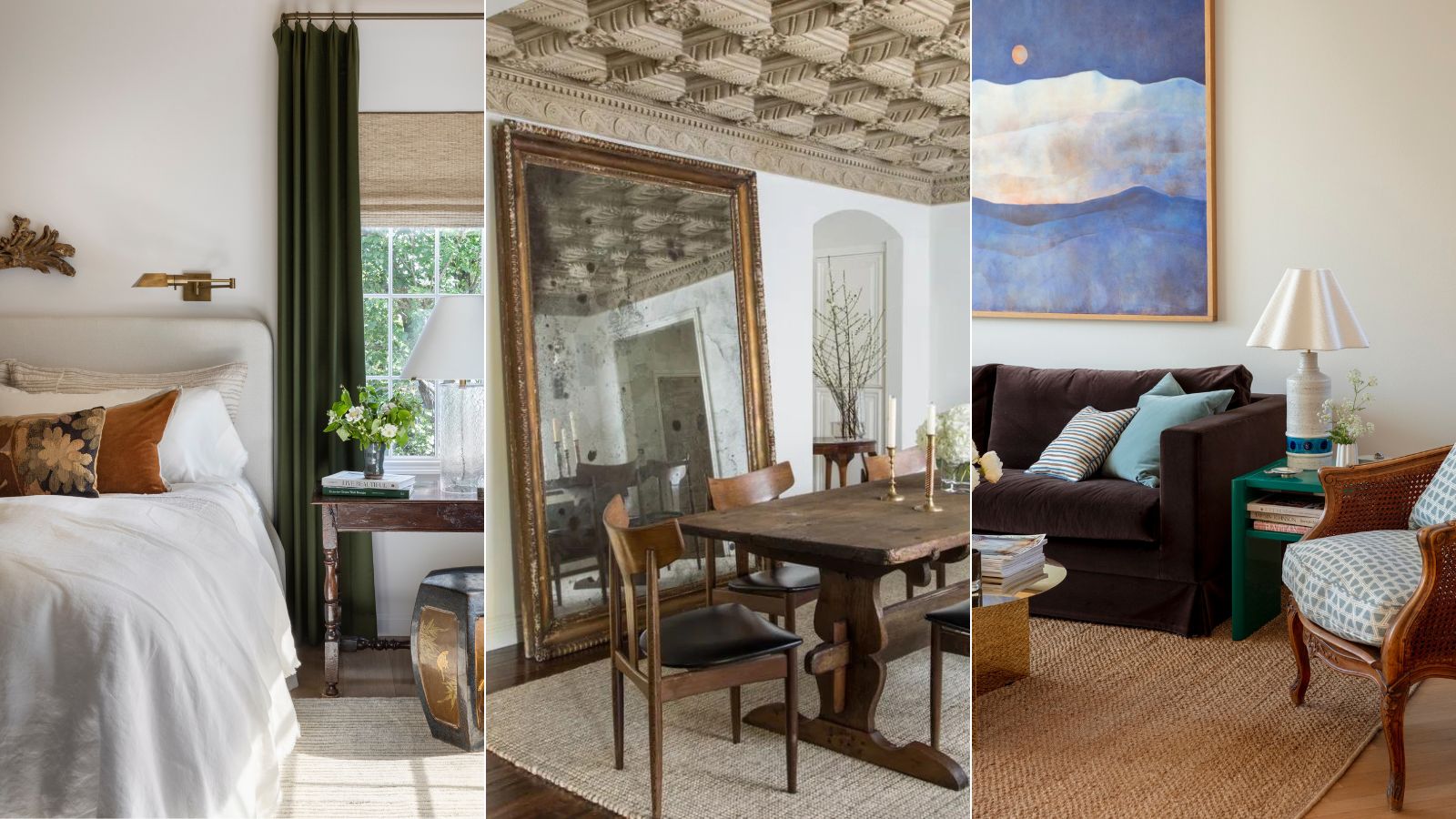
'How to make a small space appear bigger' is one of those questions that is often asked of interior designers. But small room ideas can be tricky to convey in a simple and direct way that you can easily translate into your own home. Or at least, until TikTok came about.
Creator and interior designer of short-term rental spaces, Hans Lorei, took to TikTok recently to share 8 of the most simple design hacks that he guarantees will help to create the illusion of a bigger, brighter, and more airy space.
The secret, according to Hans, is that when faced with a small room: think BIG. From big art to big rugs and even bigger mirrors, they all have the Tardis-like power to help a pint-sized room feel huge. Here, we unravel the design sensibilities behind his tips and tricks for making small spaces feel vast and inviting, without sacrificing style or function.
8 Simple Tricks To Make Your Space Feel Bigger
@hansloreidesign 8 simple ways to make a small room feel bigger. #lifehacks #decorideas #apartmentdecor #homedecor #interiordesign #interiorstyling
♬ original sound - Hans Lorei Design
Known for his straight-talking, friendly design advice – including this unique pairings TikTok design hack – Hans Lorei shares his tried-and-tested tricks to help make a small room look bigger. His video, currently amassing 63k views, starts with the designer asking: 'Do you want to make a cramped room feel huge?'. And if you find yourself answering 'yes' to that very question, stick around.
While your instinct might be to incorporate smaller pieces like furniture and rugs because your rooms are more confined, this can actually just make your home feel like a dollhouse. And that's not the only mistake you might be making on your quest to expand your space. Whether you're working with a snug studio apartment or a box bedroom, from optical illusions to strategic furniture selections, here are TikTok's favorite hacks to create a more spacious feeling in your home.
1. Stick to a light color palette
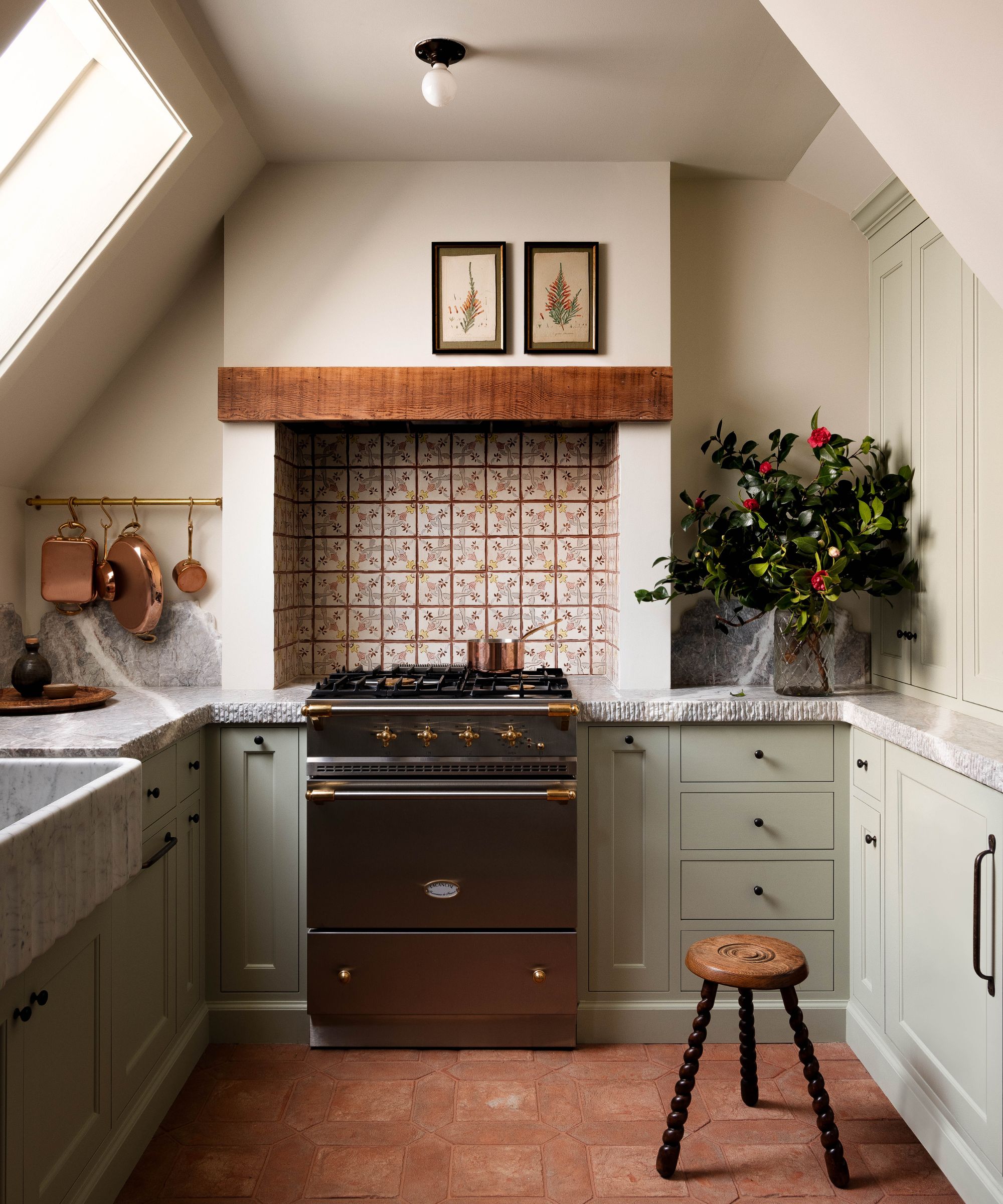
'I love color, but in this case, pastels and lighter tones are best,' advises Hans in the video.
Lighter colors make a small room look bigger and have the ability to create an expansive feeling, bouncing light around the room and giving a sense of airiness. Opting for soft hues like white, pastels, and neutral shades can instantly make a small space feel more open, tricking the eye into perceiving more space than there is.
Helen Shaw, director of marketing at Benjamin Moore, suggests when working with smaller rooms, choosing a shade of white is a safe and easy option. 'However instead of a white-white, opt for a pastel or more subdued hue as this will not only help create the illusion of a bigger space but will also add a sense of warmth and personality,' she advises. 'Then add freshness with painted woodwork, reflective surfaces, and undressed windows to flood the space with natural light,' adds Helen.
Interior designer Bethany Adams agrees, adding: 'I find that painting the ceiling, walls, and trim in the same color makes a room appear larger as there is no definitive stopping point,' says Bethany. 'Just use different sheens – for example, matte walls, and pearl trim. Or eggshell walls and satin trim.' In a similar way to mirrors, glossy and high-sheen finishes will reflect light, naturally making the space feel bigger.
2. Employ large mirrors to bounce light
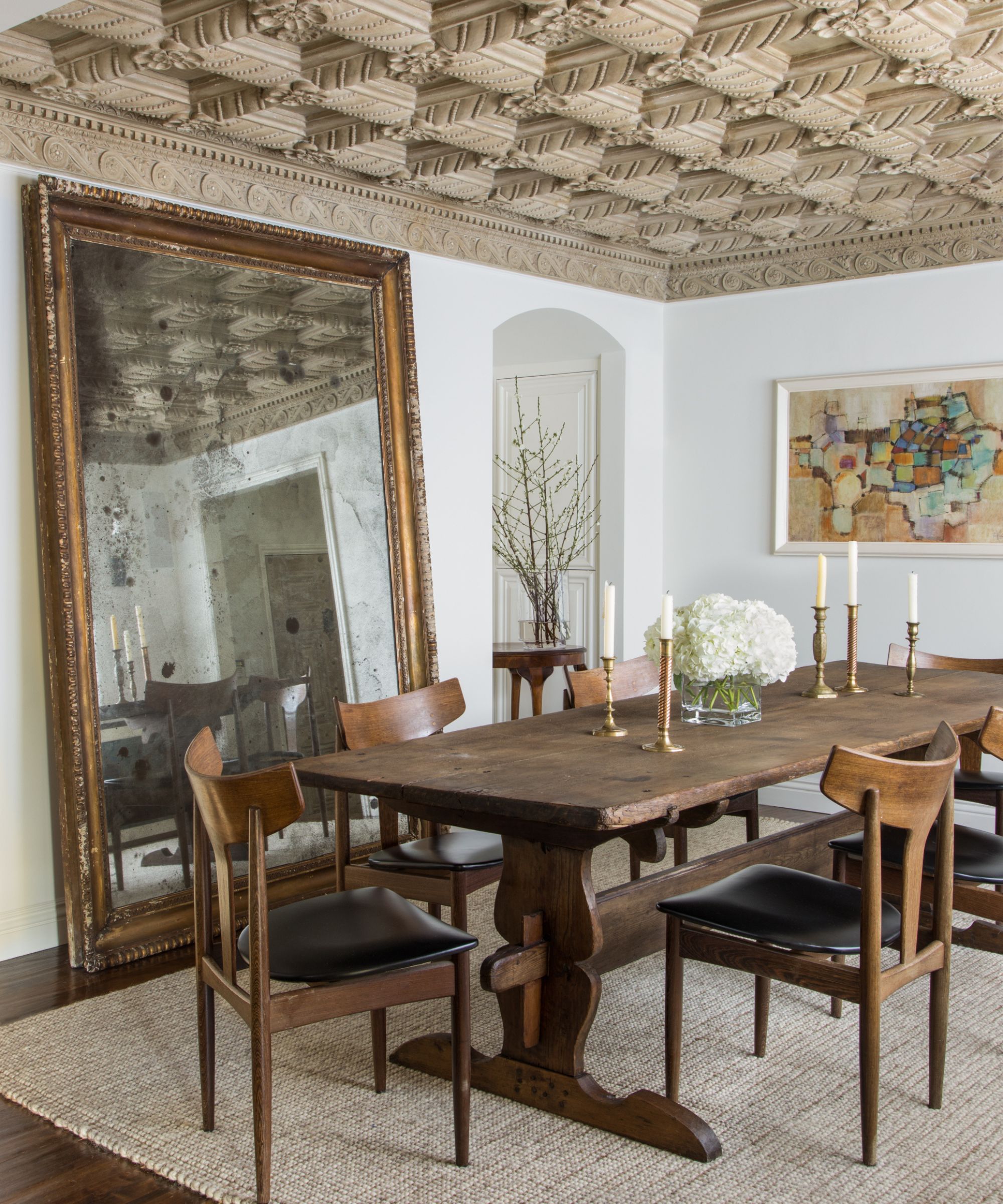
'Next is big mirrors,' says Hans. 'Big mirrors will do wonders for light in a space. It's almost like adding another window to the room,' he suggests.
One of the oldest tricks in the book, using mirrors to make a room look bigger is an easy-to-achieve way to visually add light and space in a room, without the need for demolition.
'If there is one trick that really stands true when making a room feel larger than it is, that’s adding in mirrors,' says OKA’s co-founder and creative director Sue Jones. 'It’s all about amplifying light and creating interesting reflections. They should be hung so that the center of the mirror is in your eye line to get the full effect,' she advises. 'The bigger the mirror, the brighter and larger the space will feel.'
Placing a large mirror strategically in a small room will instantly amplify its dimensions. The trick when decorating with mirrors is to (of course) choose a style that suits the room, and go as big and bold as you're able. Position it opposite a window to give the mirror the most direct route to natural light, and provide an extra view into your backyard for an outdoors-indoors feel.
3. Take your curtains all the way to the ceiling
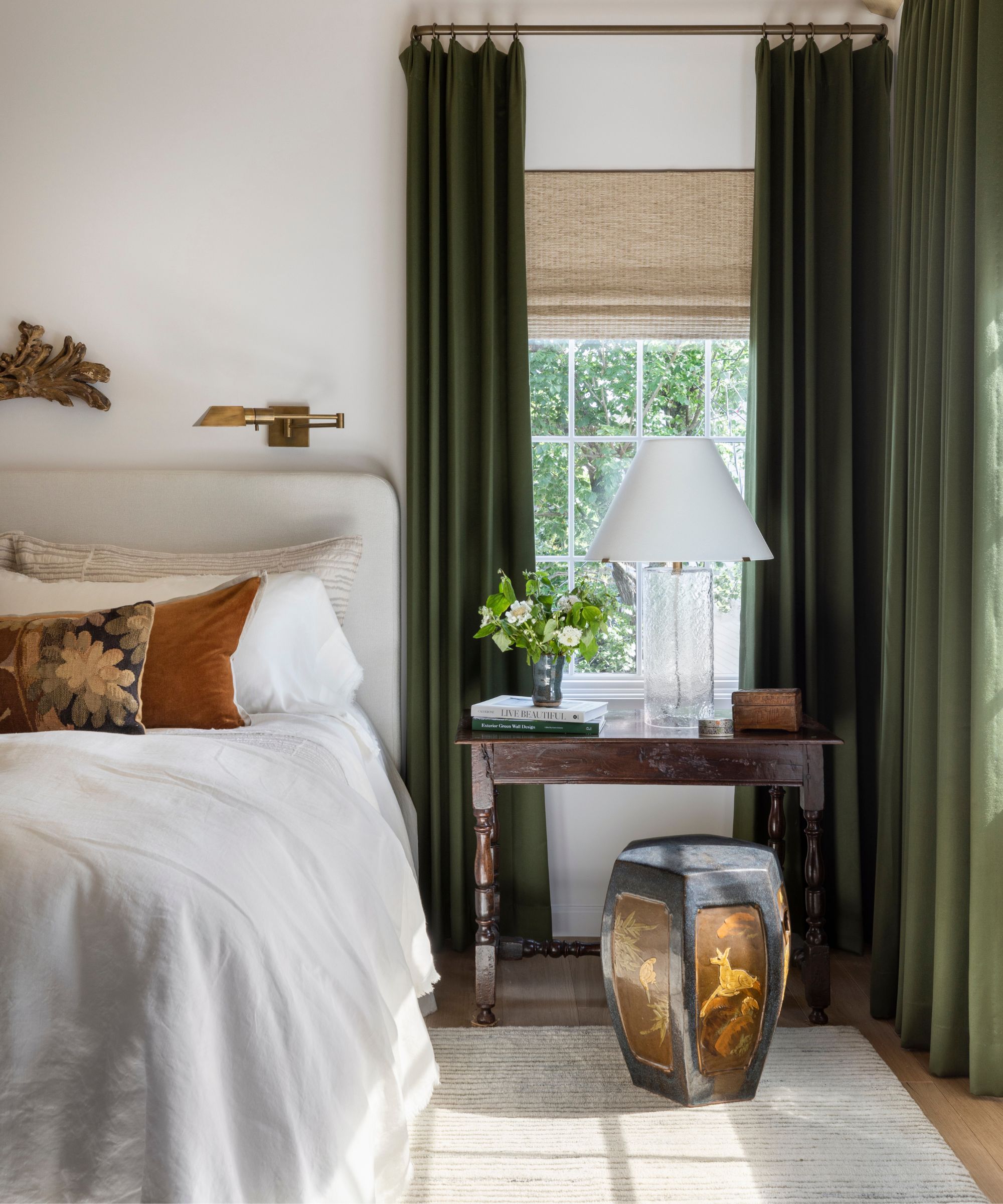
In the video, Hans advises you to 'hang your curtains nice and high, it'll make your ceilings feel taller.'
If you're wondering 'how high should I hang my curtains?', the general rule for curtain ideas is to go as high as you're able. If your ceiling allows it, you'll want to go higher than the window frame and hang as close to the ceiling as possible to draw the eye upward. In a small bedroom or small living room, this will create the illusion of higher ceilings and a little more grandeur. It's a subtle yet effective swap to elevate the overall aesthetic of your compact space.
Alternatively, 'if your window has been framed by the same drapery for a while, consider replacing it with a roller or roman blind,' suggests Marie Goodwin, head designer at Prestigious Textiles. 'These can not only make a space feel bigger but also lighter, which is ideal as we start preparing for spring,' says Marie.
4. Hang up oversized statement art pieces
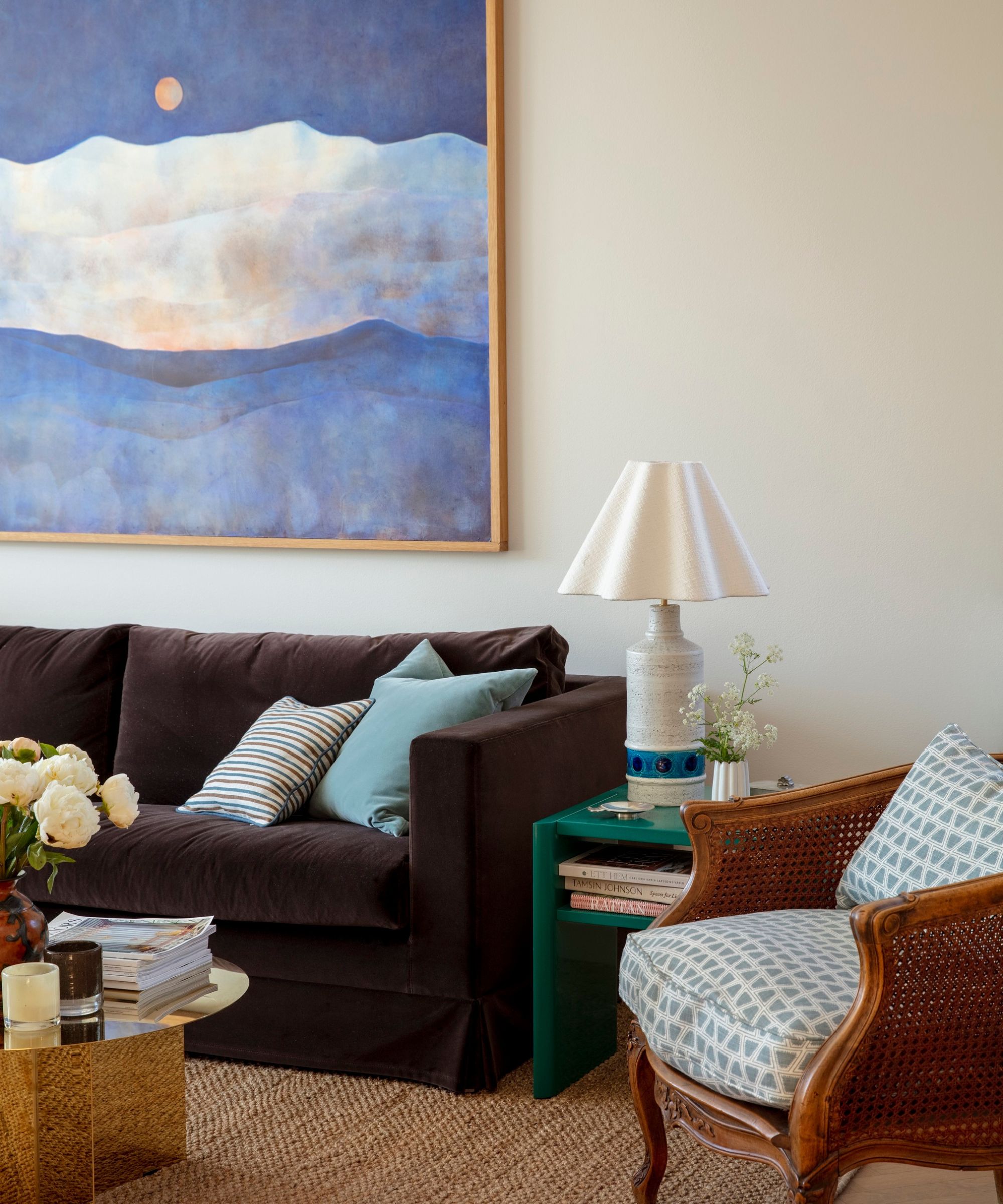
'A large painting, tapestry, or map will make the walls seem bigger than they are,' he suggests.
The impact of decorating with art in petite spaces should never be overlooked. Bold and large-scale artwork can be a powerful tool to distract from the limitations of space. Choose a statement piece that speaks to your style, and let it dominate a focal wall.
Visually extend your space with a wall mural or an oversized landscape painting that will have you feeling like you've stepped right into that scene, like in the bijou living room space seen above. The sheer scale of the artwork commands attention and creates the illusion of a more spacious environment. It's a clever tool that proves that sometimes, bigger really is better.
5. Lay down an extra large rug
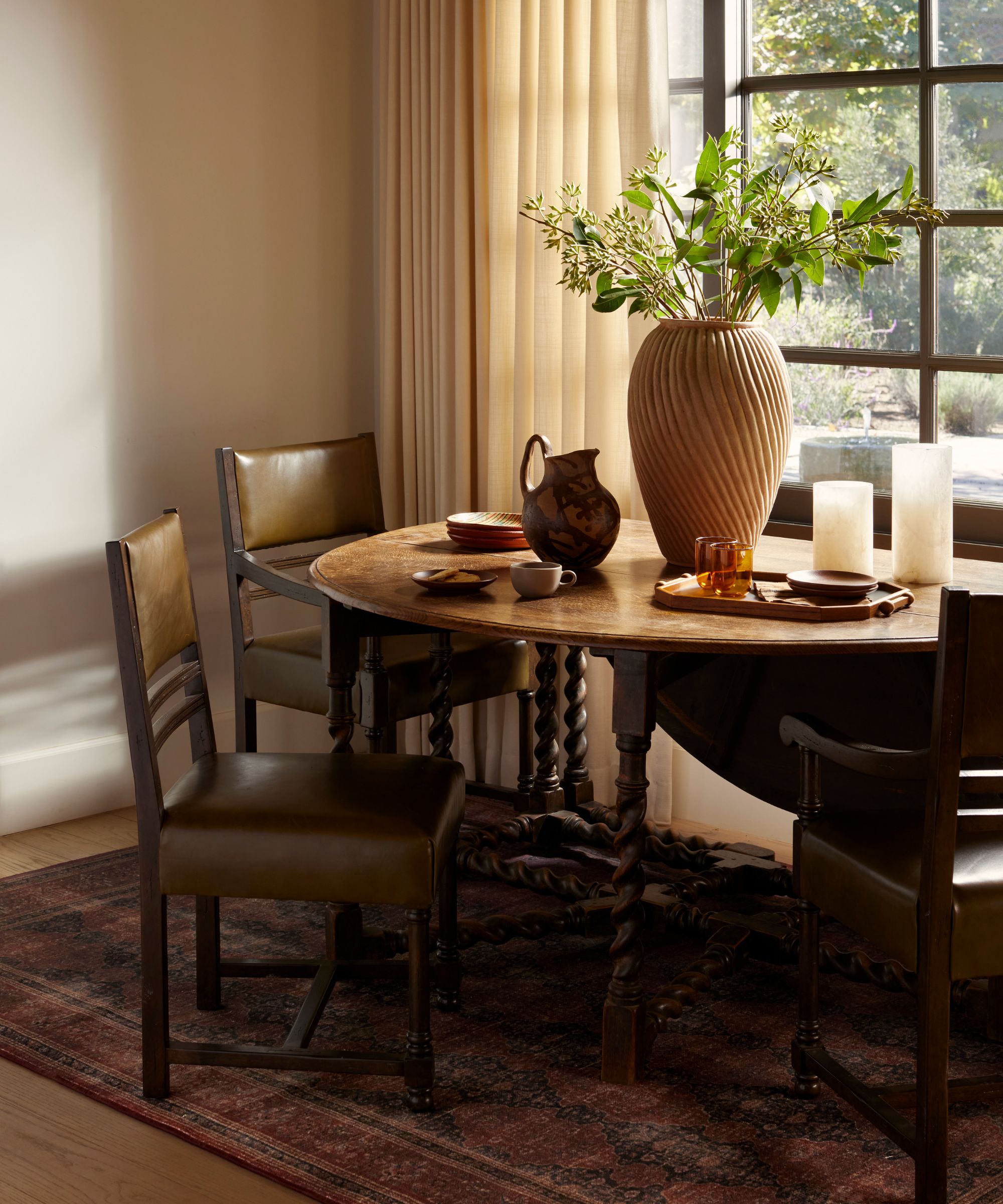
'Just like art makes walls feel bigger, a large rug makes the floor feel bigger,' Hans continues in the video.
When considering how to choose a rug, getting the area rug size right is crucial. A generously- sized rug will instantly expand the floor area. When selecting a rug, select one that covers a significant portion of the floor, with (and this is key) all the front legs of any freestanding furniture able to sit comfortably on the rug – allowing it to zone and unify the space.
'Consider integrating a rug to help center the room,' advises Mara Rypacek Miller, managing director and founder of Industville. 'You can get an “oversized” rug to give your space a plush semi-carpeted feel,' Mara suggests. 'To avoid overcrowding, place the rug at least 12 inches from each of the surrounding walls. A light-colored rug with a simple pattern will create a sense of continuity and therefore help to create the illusion of space.'
6. Choose freestanding furniture on legs
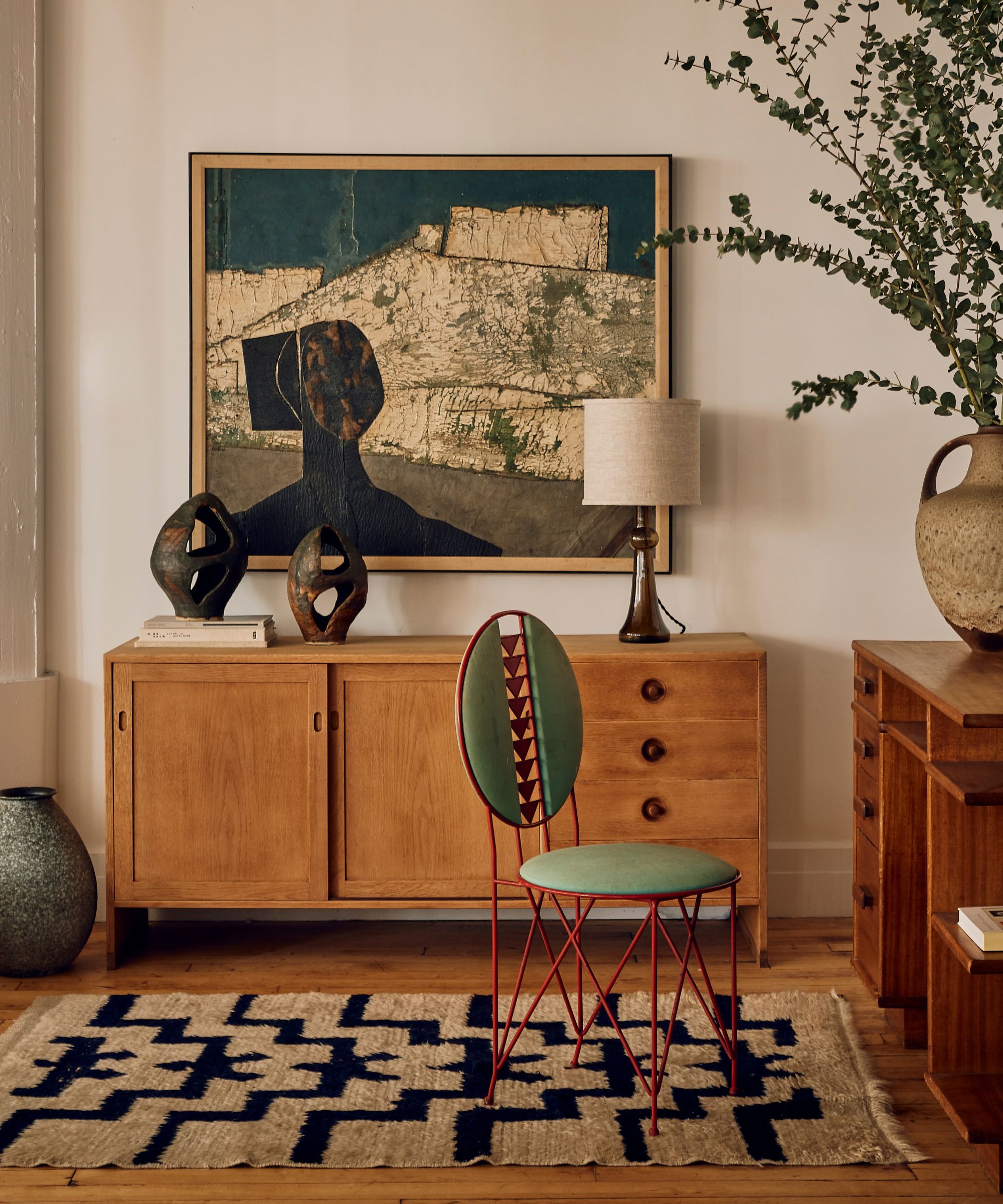
Raising furniture off the floor on legs is a genius way to introduce a sense of openness. 'This makes your furniture feel lighter and creates the illusion of more floor space,' explains Hans.
When sofas, chairs, and tables are elevated on legs, they create an airy visual effect, allowing light to flow underneath and around the furnishings so you can see more of the flooring or area rug. Think leggy and light.
'Multifunctional furniture affords you the functionality of multiple pieces, without overcrowding a small space,' suggests Challie Stillman, VP of marketing and brand strategy at Resource Furniture. 'Think of a small table that opens up to comfortably seat 10 for dinner, a guest bed that folds into a cabinet, or a home office that tucks away and disappears at the end of a long workday. These designs can enable a room to perform in several ways throughout the day and make it feel double if not triple the size.'
7. Decorate with stripes to lengthen or widen the space
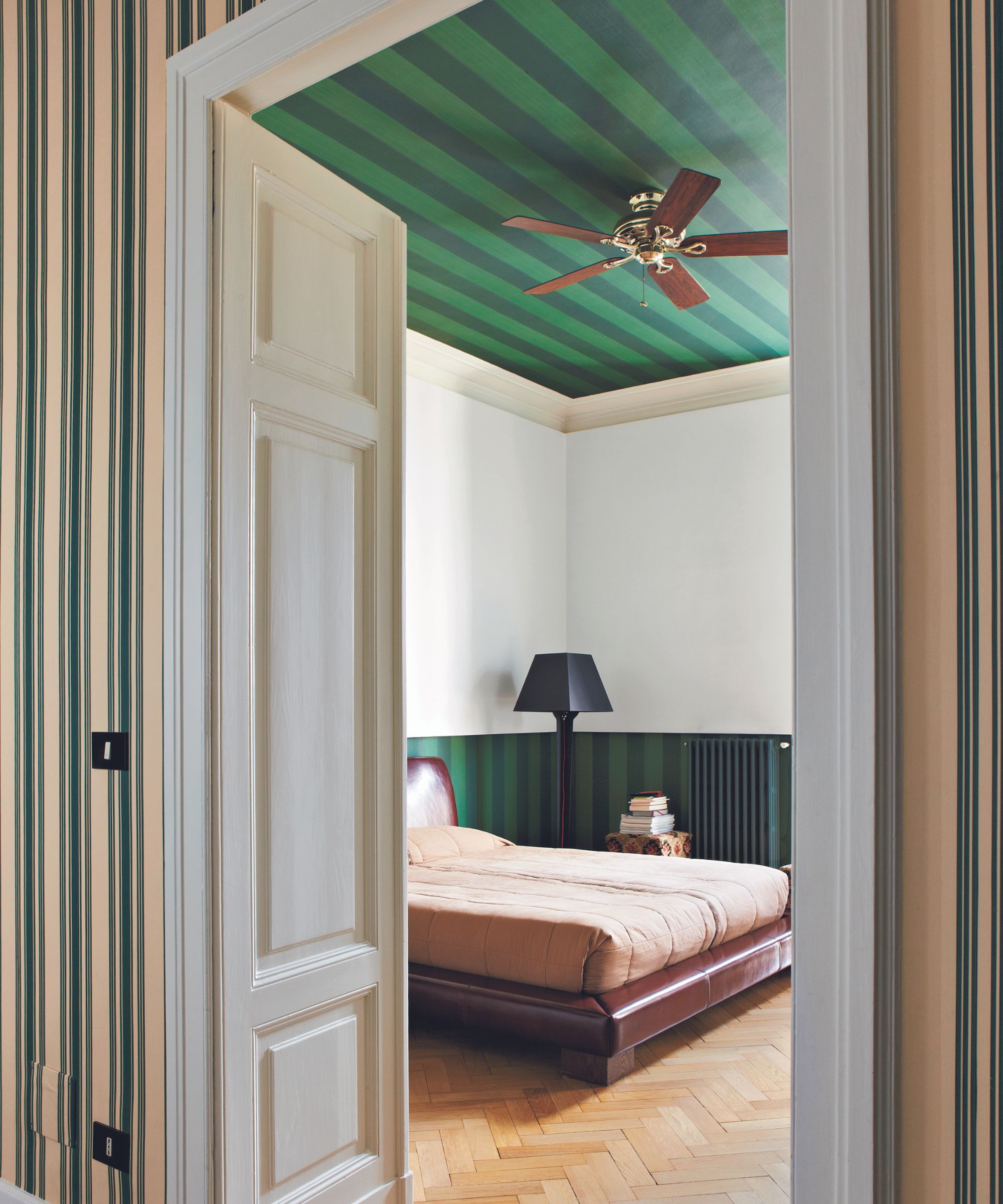
'Decorate with stripes,' says Hans. 'Vertical stripes will make your ceilings feel taller and horizontal stripes will make your walls feel wider,' he advises.
A technique employed by interior designers, otherwise known as the vertical decorating trick, using stripes within your room is going to give it the illusion of more height and space.
Vertical stripes are a great tool in the arsenal of small-space design. When applied to walls, curtains, furniture, or even an accent ceiling, they draw the eye upward, creating the illusion of a loftier space. Alternatively, horizontal stripes, as Hans suggests, can help to provide a feeling of width and depth in a room if that's what you're lacking.
8. Finally, select wall shelving over furniture
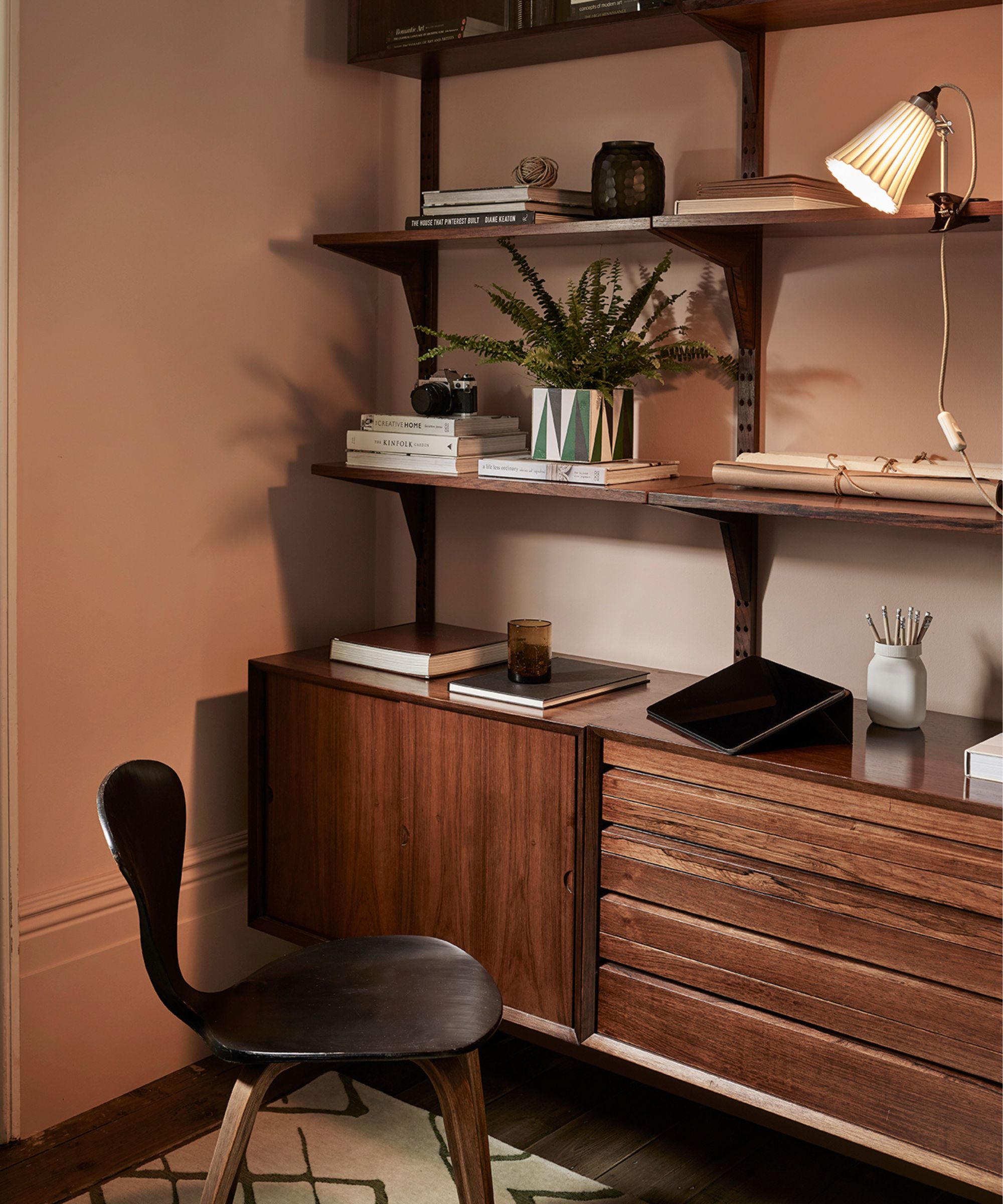
His final tip? When it comes to storage in smaller spaces, shelves are unsung heroes. 'They provide storage but don't take up floor space, leading to the illusion of a bigger floor area,' he observes via TikTok.
By appearing to 'float' on the wall, shelves provide the functionality of storage without taking up valuable floor space. This not only keeps clutter at bay but also creates an open and unobstructed vision. Arrange floating shelves strategically to showcase decorative items, books, or essentials, adding both personality and practicality. It's a brilliant solution for maximizing storage while maintaining a sense of spaciousness.
While some of Hans' ideas might feel obvious to some (adding a mirror, for instance, is a known trick to giving the idea of more space), this really is a list of some of the most straightforward ways to conquer a small space. From a quick paint job to increase shine to the introduction of a larger rug, larger art, or larger mirror that you can pick up prettily quickly and prettily cheaply. And let's not forget simply moving your curtain pole up a few inches. We hope you can take these ideas and translate them into your own rooms with ease.







